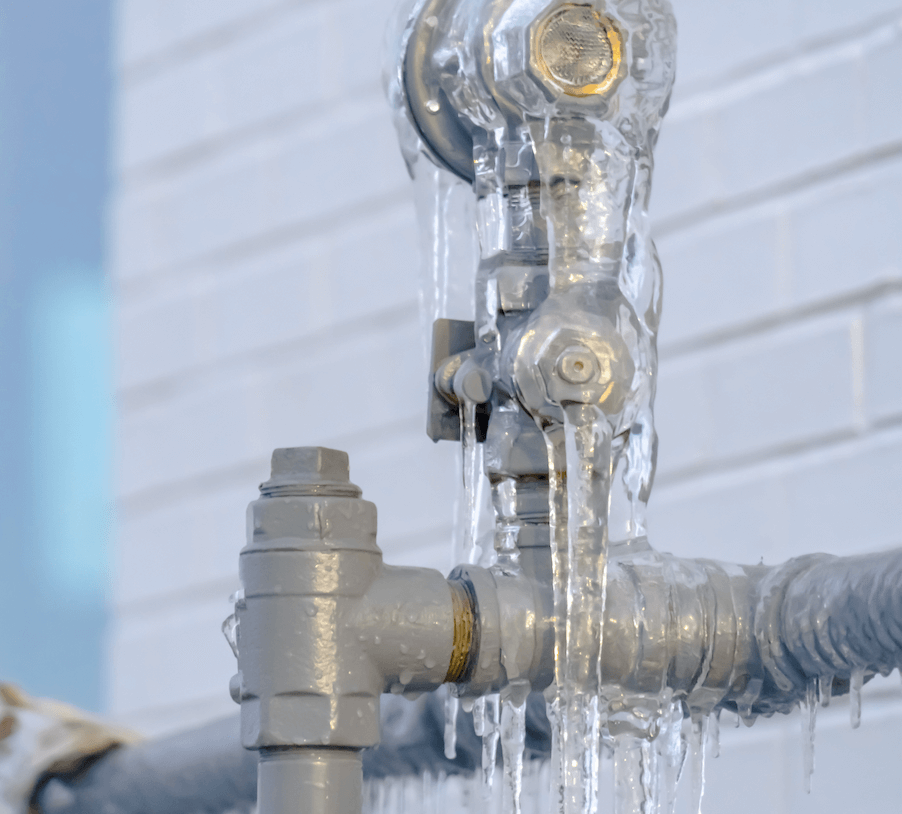Avoiding Frozen Plumbing in Winter: Professional Strategies
Avoiding Frozen Plumbing in Winter: Professional Strategies
Blog Article
Do you find yourself trying to find facts on Preventing and dealing with frozen pipes?

Winter can ruin your plumbing, particularly by freezing pipelines. Right here's just how to avoid it from happening and what to do if it does.
Intro
As temperatures drop, the risk of frozen pipes rises, potentially leading to expensive fixings and water damage. Recognizing just how to avoid frozen pipelines is crucial for house owners in chilly climates.
Understanding Icy Pipes
What creates pipelines to ice up?
Pipelines ice up when revealed to temperatures listed below 32 ° F (0 ° C) for extended periods. As water inside the pipelines ices up, it expands, taxing the pipe wall surfaces and potentially triggering them to burst.
Risks and damages
Frozen pipelines can cause supply of water interruptions, home damages, and pricey repairs. Burst pipes can flooding homes and create extensive architectural damages.
Indicators of Frozen Water Lines
Identifying icy pipes early can prevent them from rupturing.
Just how to recognize icy pipes
Seek lowered water flow from taps, uncommon smells or sounds from pipes, and noticeable frost on subjected pipelines.
Prevention Tips
Insulating vulnerable pipelines
Cover pipelines in insulation sleeves or make use of warm tape to shield them from freezing temperatures. Concentrate on pipelines in unheated or outside locations of the home.
Heating strategies
Maintain interior spaces appropriately heated up, especially locations with plumbing. Open closet doors to enable warm air to distribute around pipes under sinks.
Shielding Exterior Pipes
Garden pipes and exterior taps
Disconnect and drain pipes yard pipes before winter season. Set up frost-proof faucets or cover outdoor taps with insulated caps.
What to Do If Your Pipelines Freeze
Immediate actions to take
If you think icy pipelines, maintain faucets open to eliminate pressure as the ice thaws. Use a hairdryer or towels soaked in hot water to thaw pipelines slowly.
Long-Term Solutions
Structural modifications
Consider rerouting pipes away from outside walls or unheated locations. Add extra insulation to attics, cellars, and crawl spaces.
Updating insulation
Buy high-grade insulation for pipelines, attics, and wall surfaces. Proper insulation aids maintain consistent temperature levels and lowers the risk of frozen pipelines.
Conclusion
Preventing icy pipes needs aggressive measures and fast feedbacks. By comprehending the causes, indicators, and safety nets, property owners can protect their pipes during cold weather.
Helpful Tips to Prevent Frozen Pipes this Winter
UNDERSTANDING THE BASICS: WHY PIPES FREEZE AND WHY IT’S A PROBLEM
Water freezing inside pipes is common during the winter months, but understanding why pipes freeze, and the potential problems it can cause is crucial in preventing such incidents. This section will delve into the basics of why pipes freeze and the associated problems that may arise.
THE SCIENCE BEHIND FROZEN PIPES
When water reaches freezing temperatures, it undergoes a physical transformation and solidifies into ice. This expansion of water as it freezes is the primary reason pipes can burst. As the water inside the pipe freezes, it expands, creating immense pressure on the walls. If the pressure becomes too great, the pipe can crack or rupture, leading to leaks and water damage.
FACTORS THAT CONTRIBUTE TO PIPE FREEZING
Low Temperatures: Extremely cold weather, especially below freezing, increases the risk of pipes freezing. Uninsulated or Poorly Insulated Pipes: Pipes located in unheated areas, such as basements, crawl spaces, or attics, are more prone to freezing. Insufficient insulation or lack of insulation altogether exacerbates the problem. Exterior Wall Exposure: Pipes running along exterior walls are susceptible to freezing as they encounter colder temperatures outside. Lack of Heating or Temperature Regulation: Inadequate heating or inconsistent temperature control in your home can contribute to frozen pipes. PROBLEMS CAUSED BY FROZEN PIPES
- Pipe Bursting: As mentioned earlier, the expansion of water as it freezes can cause pipes to burst, resulting in significant water damage.
- Water Damage: When pipes burst, it can lead to flooding and water damage to your property, including walls, ceilings, flooring, and personal belongings.
- Structural Damage: Prolonged exposure to water from burst pipes can compromise the structural integrity of your home, leading to costly repairs.
- Mold and Mildew Growth: Excess moisture from water damage can create a favorable environment for mold and mildew growth, posing health risks to occupants.
- Disrupted Water Supply: Frozen pipes can also result in a complete or partial loss of water supply until the issue is resolved.
WHY CERTAIN PIPES ARE MORE PRONE TO FREEZING
- Location: Pipes located in unheated or poorly insulated areas, such as basements, crawl spaces, attics, or exterior walls, are at higher risk of freezing.
- Exterior Pipes: Outdoor pipes, such as those used for irrigation or exposed plumbing, are particularly vulnerable to freezing as they are directly exposed to the elements.
- Supply Lines: Pipes that carry water from the main water supply into your home, including the main water line, are critical to protect as freezing in these lines can affect your entire plumbing system.
- Underground Pipes: Pipes buried underground, such as those connected to sprinkler systems or outdoor faucets, can be susceptible to freezing if not properly insulated.
https://busybusy.com/blog/helpful-tips-to-prevent-frozen-pipes-this-winter/
:strip_icc()/snow-outdoor-faucet-pipes-4af65d1e5e904fb1aa7bf74071fe5d89.jpg)
Do you appreciate reading up on How to Prevent Your Pipes From Freezing? Try leaving a short review down below. We would be glad to listen to your responses about this blog post. We are looking forward that you come back again in the near future. If you enjoyed our blog entry if you please be sure to pass it around. Many thanks for your time. Please visit our website back soon.
Click Here Report this page